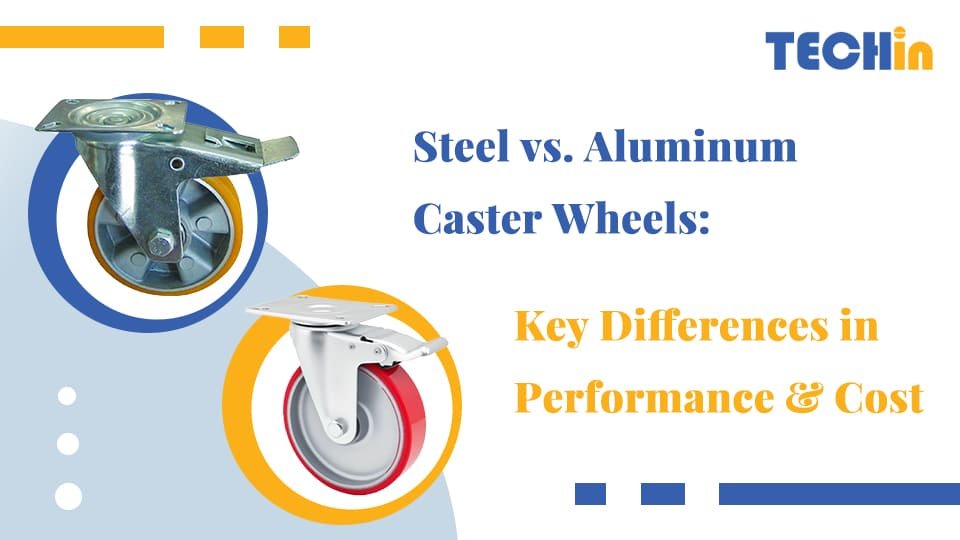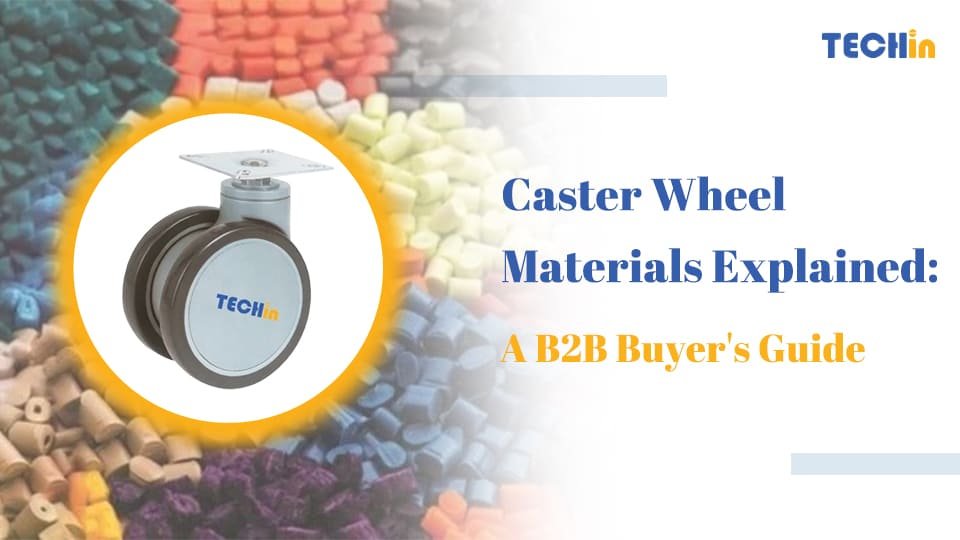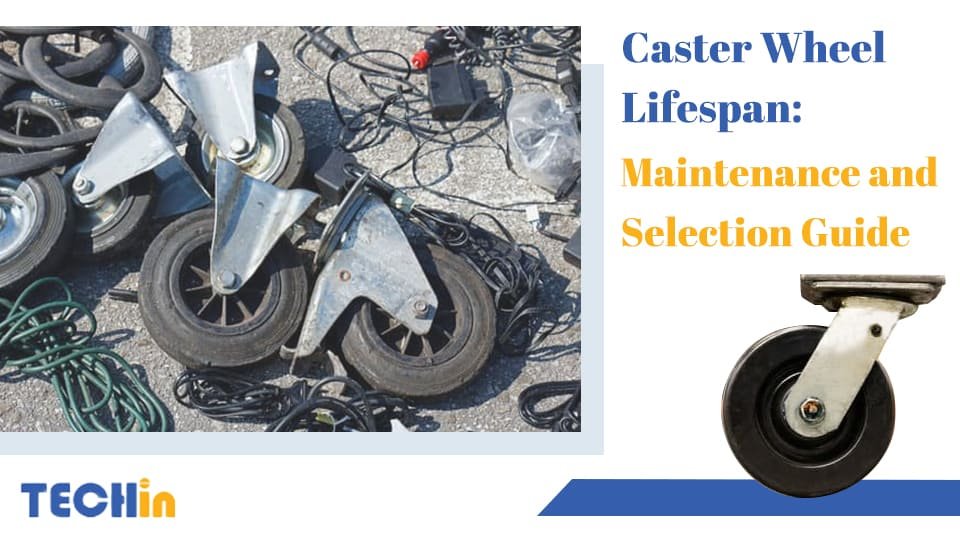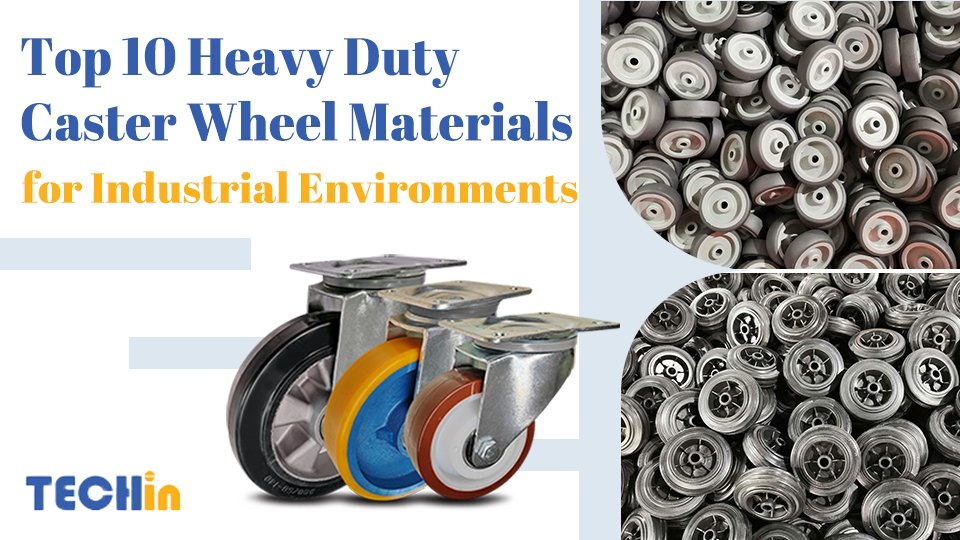If you work in a demanding industrial environment, you know that standard castors often can’t handle the pressure of high heat and stress. Choosing the right castor is a critical decision for performance, safety, and the longevity of your equipment. This article breaks down the comparison between INOX heat resistant castors and standard models, giving procurement managers and buyers the practical insights needed to make the right call.
Here’s the fundamental difference: INOX heat resistant castors are engineered to perform reliably in extreme temperatures and corrosive environments where standard castors degrade. Built from robust materials like stainless steel, phenolic resin, or specialized rubber, heat resistant castors maintain their integrity under heat. In contrast, standard castors can deform, weaken, or rust when exposed to high temperatures, creating risks for both safety and operational efficiency.
This guide will walk you through the technical differences, benefits, and applications of INOX heat resistant castors, empowering you to make a confident, performance-driven purchasing decision for your high-temperature industrial needs.
What Exactly Are INOX Heat Resistant Castors?
Think of INOX heat resistant castors as highly specialized components, designed for environments where heat, harsh cleaning agents, or corrosive substances are part of the daily routine. The term “INOX” simply refers to stainless steel, a material valued for its exceptional resistance to corrosion, its mechanical strength, and its stability under thermal stress.
Unlike standard castors, which often use mild steel or plastics that are vulnerable to heat, INOX heat resistant castors are constructed with superior components:
- Stainless steel housings and forks
- High temperature resistant wheel materials, such as phenolic resin or special rubber compounds
- Specialized lubricants formulated to maintain their viscosity and performance at high temperatures
These castors are built for dependable, long-term service in settings where conventional products would quickly fail.
What are the Advantages of INOX Heat Resistant Castors over Standard Castors?
When you look at the technical specifications, the advantages of INOX heat resistant castors become very clear. Here’s what sets them apart:
1. Exceptional Temperature Resistance
INOX heat resistant castors are designed to operate in continuous temperatures from -40°C up to +280°C, depending on the wheel material. Standard castors, by comparison, often begin to fail or wear rapidly above 80°C.
2. Superior Corrosion Resistance
Being made from stainless steel, INOX castors provide outstanding protection against rust. This makes them the ideal choice for humid, wet, or chemically aggressive environments like food processing or pharmaceutical facilities.
3. Maintained Load Capacity Under Heat
Heat can cause standard castors to soften and lose their ability to support a load. INOX castors are engineered to retain their structural integrity and load ratings, ensuring operational safety is never compromised by thermal stress.
4. Enhanced Durability and Longevity
By resisting both mechanical wear and environmental breakdown, INOX heat resistant castors offer a significantly longer service life. This translates to fewer replacements and lower overall maintenance costs.
5. Compliance with Hygiene and Safety Standards
Many INOX castors are manufactured to meet strict industry-specific hygiene standards, making them suitable for cleanrooms, food production lines, and medical applications.
For procurement managers focused on long-term value and performance, INOX heat resistant castors are a technically superior investment.
How Are the Materials of INOX Heat Resistant Castors Different?
The materials in INOX heat resistant castors are chosen specifically for their ability to withstand high temperatures, corrosion, and mechanical stress. This is what truly separates them from standard castors, which rely on materials not suited for such demanding conditions.
Common Materials Used in INOX Heat Resistant Castors:
Phenolic:
A top performer known for its excellent heat resistance (up to +280°C), high load capacity, and resistance to chemicals. Phenolic wheels are also lightweight and non-marking.
Glass-Filled Nylon:
This is a composite material that offers significantly improved heat resistance and strength compared to standard nylon, providing solid load-bearing capabilities while resisting corrosion.
Forged Steel:
For maximum durability, forged steel wheels are the choice for environments with extreme temperatures and the potential for high impact.
Cast Iron:
A robust and heat-resistant option, cast iron wheels are well-suited for high-load applications on rough industrial floors, though they can be noisy and may damage sensitive surfaces.
In contrast, standard castors often use:
- Low-grade rubber or plastic wheels that deform under heat
- Mild steel parts that rust in humid or corrosive settings
- Lubricants that break down at high temperatures
Choosing the right material is fundamental to ensuring a castor performs as needed in its intended environment.
Where are INOX Heat Resistant Castors Used?
You’ll find these specialized castors across a range of industries where standard models are simply not a viable option. Key applications include:
- Food and Beverage Industry: Bakeries, commercial ovens, and food production lines with constant heat, steam, and frequent washdowns.
- Pharmaceutical and Medical Equipment: Cleanrooms and labs that require strict hygiene, resistance to cleaning agents, and temperature stability.
- Industrial Manufacturing: On machinery, trolleys, and transport equipment exposed to high-heat processes like welding or curing.
- Laboratories and Research Facilities: For mobile equipment in settings that demand resistance to both heat and aggressive chemicals.
- Heavy Duty Applications: In foundries, kilns, and drying rooms, where extreme conditions cause standard castors to fail rapidly.
One notable brand offering these solutions is Techin, known for its high-quality INOX heat resistant castors tailored for industrial and heavy-duty applications.
How Do INOX Heat Resistant Castors Perform in Industrial Settings?
In real-world industrial applications, INOX heat resistant castors deliver exceptional reliability. They are engineered to withstand:
- Continuous high temperatures
- Intermittent thermal shocks
- Exposure to oils, greases, cleaning agents, and chemicals
- Demanding load requirements
- The need for hygienic, easy-to-clean surfaces
Field data and case studies consistently show that INOX castors maintain their form, load capacity, and smooth operation under these conditions, far outlasting standard models. Their proven resistance to material fatigue and corrosion makes them essential in any environment where equipment downtime is not an option.
Are Stainless Steel Castors Ideal for High Heat Environments?
Yes, stainless steel is an excellent foundation for high-heat castors, primarily due to its inherent corrosion resistance, strength, and stability at elevated temperatures.
However, it’s crucial to understand that the entire castor assembly determines its true heat resistance. The wheel material, the bearings, and the lubricant are just as important as the stainless steel frame. A stainless steel housing is only part of the solution.
This is why INOX heat resistant castors are the optimal choice. They integrate a stainless steel structure with specialized, high-temperature wheels and lubricants to create a complete system designed to perform in demanding, high-heat applications.
Summary
INOX heat resistant castors offer the reliable, durable performance required in environments where standard castors fail. For any industry facing high temperatures and corrosive conditions, they are a technical necessity. Buyers should view these advanced components as a strategic investment in operational safety, equipment longevity, and uninterrupted productivity.










